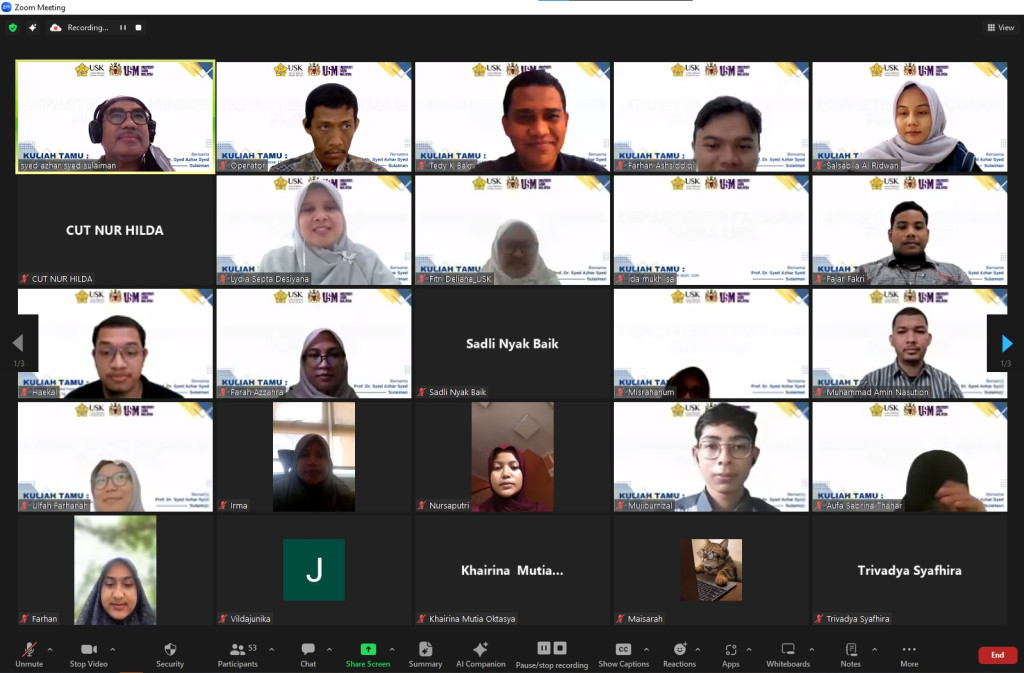
Banda Aceh, May 22, 2024 – The Department of Pharmacy, FMIPA USK, held a guest lecture via Zoom on The Role of Pharmacists in Managing MDR TB, XDR TB, and Case Discussions on TB. Prof. Dr. Syed Azhar Syed Sulaiman from the Universiti Sains Malaysia was the keynote speaker. The guest lecture, held from 09.00 to 12.30 WIB, was attended by lecturers, students, and healthcare professionals.
Prof. Syed Azhar explained that Multi Drug-Resistant Tuberculosis (MDR TB) and Extensively Drug-Resistant Tuberculosis (XDR TB) are TB resistant to standard treatment. MDR TB is resistant to at least two primary anti-TB drugs, isoniazid and rifampicin, while XDR TB exhibits even more severe resistance, including to fluoroquinolones and one of the second-line drugs.
Impact of the Covid-19 Pandemic on the Increase in TB Cases
Prof. Syed Azhar also highlighted the impact of the Covid-19 pandemic on the increase in TB cases. According to him, patients who have been diagnosed with Covid-19 have weakened immune systems, making them more susceptible to contagious diseases like TB. Several factors contributing to the increase in TB cases post-Covid-19 include:
- Reduced Access to Healthcare Services: Restricted access during the pandemic led to many TB cases being undiagnosed and untreated.
- Low Compliance due to Socio-Economic Conditions: Increased poverty, malnutrition, and other living conditions post-Covid-19 have heightened the risk of TB transmission.
Strategies for managing MDR TB and XDR TB Prof. Syed Azhar outlined several key strategies for managing MDR TB and XDR TB, which include:
- Drug Susceptibility Testing (DST): The importance of conducting drug susceptibility tests to tailor the appropriate treatment regimen.
- Treatment Regimen: WHO recommends a standard regimen consisting of four second-line drugs for the initial intensive phase and the continuation phase.
- Duration of Treatment: Treatment for MDR TB usually lasts longer, typically 9 to 20 months or more, depending on disease severity and patient response.
- Directly Observed Therapy (DOT): Ensuring treatment adherence and monitoring side effects to reduce the risk of treatment failure.
- Management of Side Effects: Handling side effects such as nausea, vomiting, hearing loss, and kidney toxicity.
- Additional Supportive Care: Nutritional support, management of comorbidity, and psycho social support to improve treatment outcomes.
- Regular Monitoring and Follow-Up: Routine evaluations to assess treatment effectiveness and detect signs of treatment failure or relapse.

This guest lecture underscored the crucial role of healthcare providers, especially pharmacists, in addressing the challenges of treating MDR TB and XDR TB. Emphasizing a multidisciplinary approach is essential to optimize treatment outcomes and minimize the risk of further drug resistance.
